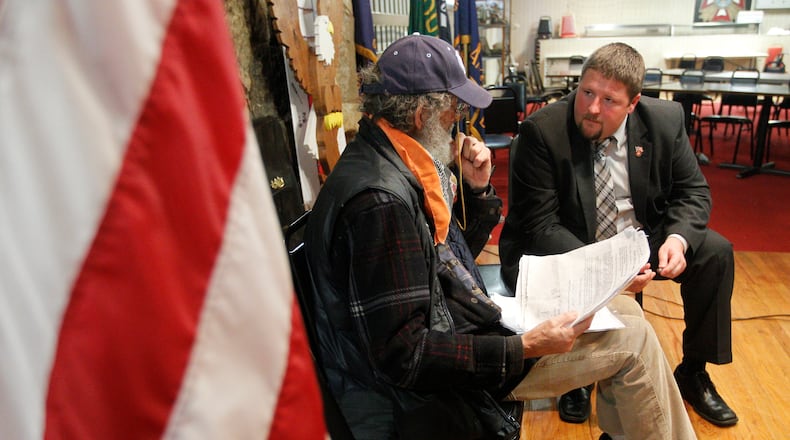“While this report failed to use the latest data and reached inaccurate conclusions, we know too many veterans have to wait too long to get the benefits they have earned and deserve,” the VA said in a statement. “That’s unacceptable, and we are implementing a robust plan to fix the problem.”
The department has targeted bringing wait times down to 125 days by 2015. The agency trained more than 2,100 employees in a new electronic based processing system to process claims more quickly.
The think tank’s examination found of 870,000 veterans with claims pending with the VA, 31 percent will likely be rejected while 60 percent of the denials will be made in error. Of those, 30 percent of claims were caused from inaccurate medical exams, said Pamela Villarreal, a senior fellow at the think tank in Dallas. About 4 percent of claims end up getting lost or misplaced, according to the study.
Less than half, 46.8 percent, of key employees have received competency training evaluation or training every year, the report concluded.
“It’s like a lot of government programs,” Villarreal said. “There’s just not a lot of incentive to make the process better for veterans.”
The VA criticized the report for using out of date data and developed “broad projections based on limited, non-representative samplings.”
The center’s conclusion that 60 percent of denied claims are erroneous was based on a flawed study using appeal data from 2009, the federal agency said. The VA overturned less than 1.2 percent of regional office decisions in the last fiscal year while handling more than a million claims with veterans agreeing with nine out of 10 of the decisions, the VA said.
Villarreal said the center stands by the study’s conclusions with the data available at the time.
Waiting for claims
Jack E. Choate, 48, of Dayton, was an Ohio Army National Guard soldier sent to Iraq in 2004 as a truck driver. When he returned home, he said the VA took 21 months to handle his disability claim and give him a medical finding of post traumatic stress disorder.
“I’m not really complaining because I’m lucky to get it done that quick compared to other veterans who are fighting for their claims,” he said.
Kenneth D. Frazier, a former Springfield resident who moved to Florida, echoed one of the report’s findings based on his years of dealing with the VA since he left the Army in 1970.
“The VA likes to find reasons not to process claims, in my opinion,” he said. “I think things could be streamlined better if there was more training of people who do the work.”
Most VA employees try to meet veterans needs, but those that don’t diminish the rest of the workforce, he said.
The VA has has a 20 percent spike in VA disability claims since 2008 while the number of veterans compensated for PTSD has grown 70 percent over the same time.
The reasons for the growth in backlog is increased demand, a decade of war and veterans returning home with severe, complex injuries, according to the VA. Two years ago, the VA added three new medical conditions tied to exposure to Agent Orange, attempted to simplify the PTSD claims process, and expanded benefits for the Gulf War illness.
“Those decisions were clearly the right thing to do but added one million claims to the system,” Larson said in an email.
Forty-five percent of veterans who served in Iraq and Afghanistan, an historically high percentage, have asked for compensation for war-related injuries. The veterans have eight to 10 medical issues per claim, more than twice the Vietnam era, according to the VA.
The free-market think tank has urged three chief recommendations: allowing veterans to spend money from a personal health savings account to pay for private insurance or exams; a state takeover of VA administrative services; and letting private contractors bid on VA administrative services.
“We’re not saying the whole system should be privatized but we should look at having private contractors process these claims because that’s what they are trained to do,” Villarreal said.
About the Author
